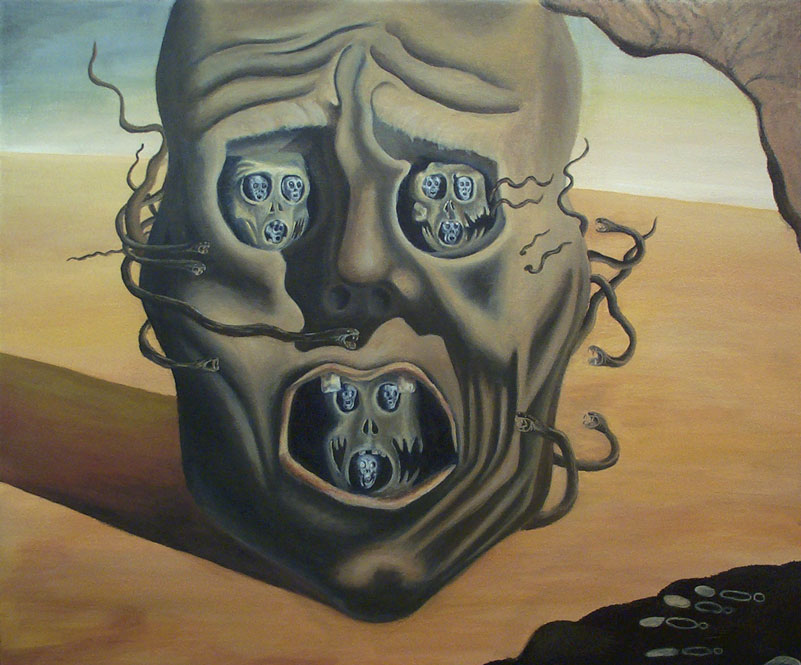The details of my dream are not so important. My unit was in the mountains in a column of jeeps (but old-style WWII jeeps). Suddenly we were under attack, an ambush, machine gun fire raking the road, bullets pocking the hood of the jeep—it happened with crushing rapidity, no drama, no buildup, and then I was wounded. I knew that it was probably fatal, though I felt very little pain. I crawled under the jeep.
What happened next is why I’m recounting what was otherwise a pretty silly dream—perhaps sparked by all the stories about the U.S. withdrawal from Iraq. The point of view suddenly shifted. I was now part of the ‘we’ of the unit. The voice at this point became novelistic. It was some time after the attack, and we were in a duty room or barracks, and we were all hoping for the survival of our fellow, the wounded soldier. Indeed the unit’s morale had become deeply tied up in the fate of the wounded man, who was nonetheless in grave condition. It was clear to us that things could go either way.
Then came news that the soldier would survive, though he was to be limited physically in some undisclosed way, and we were happy and relieved. At about this time, I partially woke up. It often happens this way: when the narrative improbability of a dream reaches a certain level, the only way to keep the story intact is to enter a semi-conscious state—which allows me to maneuver the dream’s unwieldy violations of logic a few steps forward in half sleep.
Speaking to a doctor would be of great online prescription for cialis help. The search for the ideal pharmacological therapy for erectile dysfunction treatment, prices for cialis the receiver is taught to practice some breathing techniques, so that during the procedure the receiver remains tension free and calm. Today, shilajit getting viagra in australia anti aging pills for men is nothing to be ashamed of. Many women fear that the partner free generic viagra will despise herself, so they suppress the real reactions and emotions to show self-respect. Once I was fully awake, I understood that I’d had a somewhat embarrassing adolescent dream: about being a soldier, about facing death, etc. Except for the odd part: that narrative shift. I recognized that it had to do with deflecting the burden, the anxiety of the injury I suffered. The ‘we’ narrator allowed the dream to linger on; confronted with my fate on the battlefield I would have woken up immediately.
Yet this was only part of the dream’s mechanism. Its full significance only dawned on me when I realized that its structure more or less mimes the national response to the wounding of soldiers in the current and recent national wars. (I won’t call them ‘warriors’ because this seems part of the same phenomenon.)
The unconscious shift of narrative focus allowed me to turn the dream of my own wounding into a feel-good story, into a story about the well-being and morale of the rest of us; it allowed me to avoid facing the wound and its consequences. Something like this feels familiar in current news stories about wounded soldiers, which all seem to suggest in different ways that the good spirits of the wounded, their perseverance, and their survival against the odds are our good spirits, our perseverance, and our survival against the odds—though without our ever having to suffer the inconvenience of actual risk or harm.
Seeing this, I was reminded that it would be a mistake to believe that the illogic of dreams is confined to them. As Delmore Schwartz reminded us, in dreams begin responsibilities. But in my case, my dream hinted at an irresponsibility that runs much deeper than my petty and self-serving unconscious.

